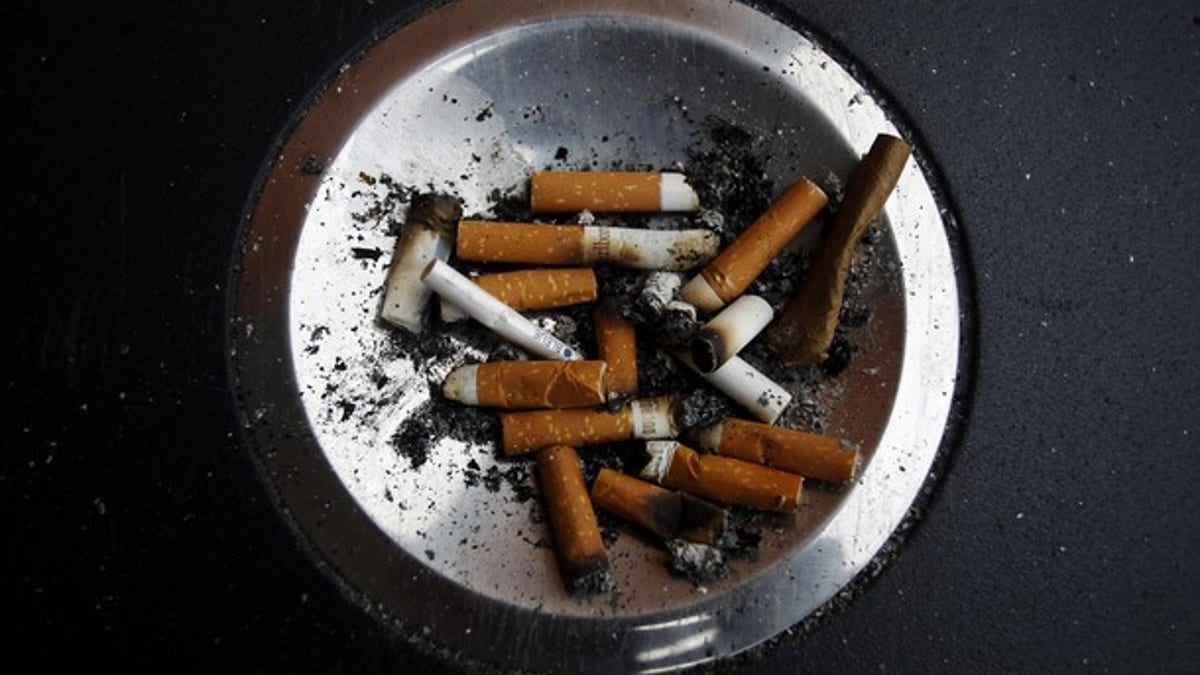
Cigarette butts are left in an ashtray at Atocha train station in Madrid January 1, 2011. A new Spanish anti-smoking law will take effect on January 2 that will prohibit smoking in all enclosed spaces as well outside hospitals, at playgrounds and schools. The Spanish Socialist government wants to put the country in line with the European Union's strictest anti-smoking nations. REUTERS/Susana Vera (SPAIN - Tags: SOCIETY POLITICS) (Reuters)
The health of pregnant women and babies improved after smoking in public places was banned in Scotland, a new study says.
Preterm deliveries dropped by more than 10 percent, and the percentage of infants born small for their gestational age dropped by 5 percent after the legislation went into effect in 2006, according to the findings from researchers at the University of Glasgow.
"There is growing evidence of the potential for tobacco control legislation to have a positive impact on health," according to the researchers.
In their study, the researchers collected data on all babies born in Scottish maternity hospitals between January 1996 and December 2009.
The researchers also found that following the smoking ban, the number of mothers who smoked dropped. Before the ban, 25.4 percent of women who gave birth smoked, whereas afterwards, 18.8 percent did.
The reductions in preterm births and small-for-gestational-age babies occurred both in mothers who smoked and those who had never smoked, which demonstrates the impact second-hand smoke, the researchers said.
Because preterm infants are at risk of developing long-term health problems, "any intervention that can reduce the risk of preterm delivery has the potential to produce important public health benefits," the researchers said.
